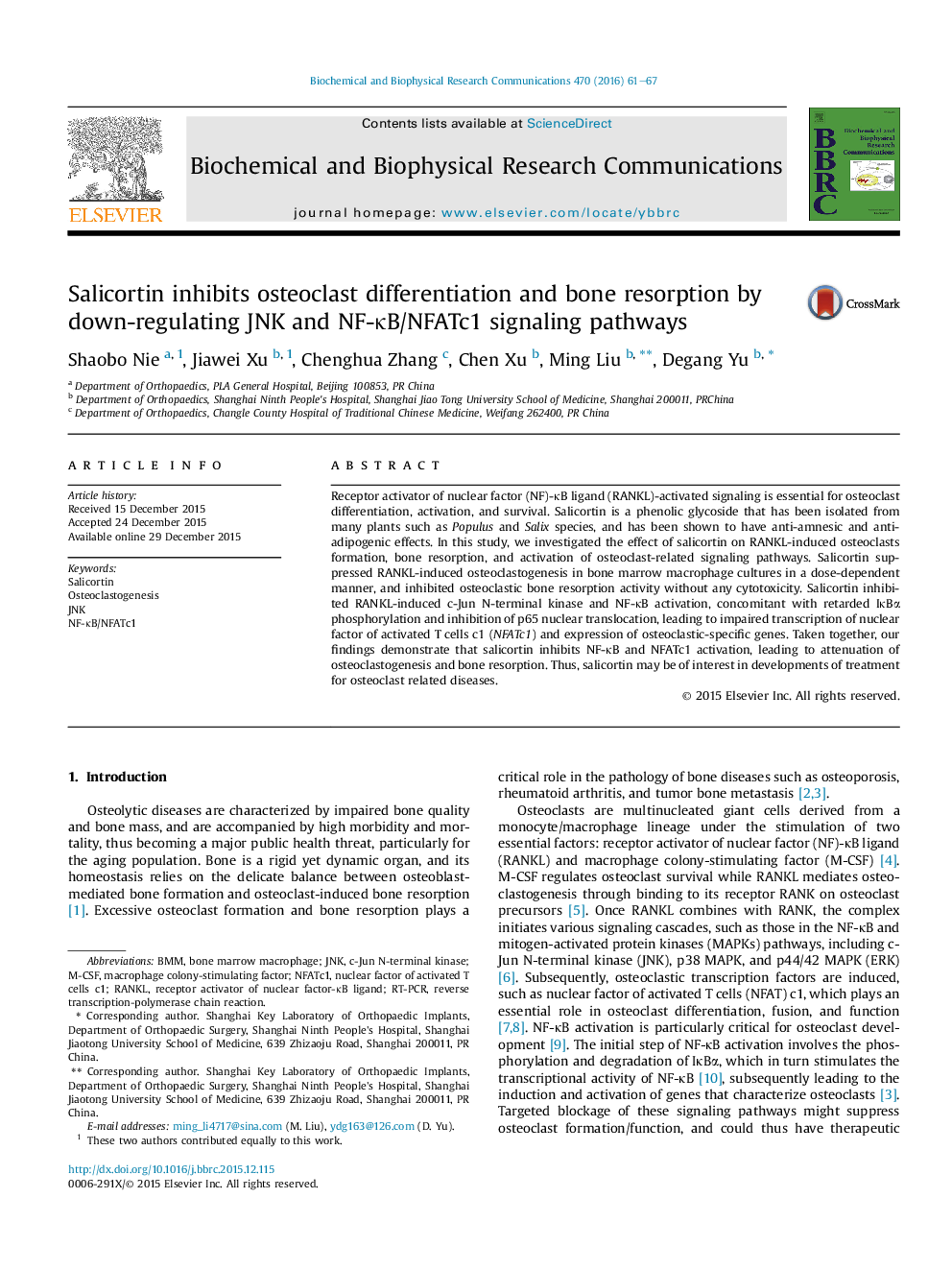| Article ID | Journal | Published Year | Pages | File Type |
|---|---|---|---|---|
| 10749339 | Biochemical and Biophysical Research Communications | 2016 | 7 Pages |
Abstract
Receptor activator of nuclear factor (NF)-κB ligand (RANKL)-activated signaling is essential for osteoclast differentiation, activation, and survival. Salicortin is a phenolic glycoside that has been isolated from many plants such as Populus and Salix species, and has been shown to have anti-amnesic and anti-adipogenic effects. In this study, we investigated the effect of salicortin on RANKL-induced osteoclasts formation, bone resorption, and activation of osteoclast-related signaling pathways. Salicortin suppressed RANKL-induced osteoclastogenesis in bone marrow macrophage cultures in a dose-dependent manner, and inhibited osteoclastic bone resorption activity without any cytotoxicity. Salicortin inhibited RANKL-induced c-Jun N-terminal kinase and NF-κB activation, concomitant with retarded IκBα phosphorylation and inhibition of p65 nuclear translocation, leading to impaired transcription of nuclear factor of activated T cells c1 (NFATc1) and expression of osteoclastic-specific genes. Taken together, our findings demonstrate that salicortin inhibits NF-κB and NFATc1 activation, leading to attenuation of osteoclastogenesis and bone resorption. Thus, salicortin may be of interest in developments of treatment for osteoclast related diseases.
Keywords
Related Topics
Life Sciences
Biochemistry, Genetics and Molecular Biology
Biochemistry
Authors
Shaobo Nie, Jiawei Xu, Chenghua Zhang, Chen Xu, Ming Liu, Degang Yu,
